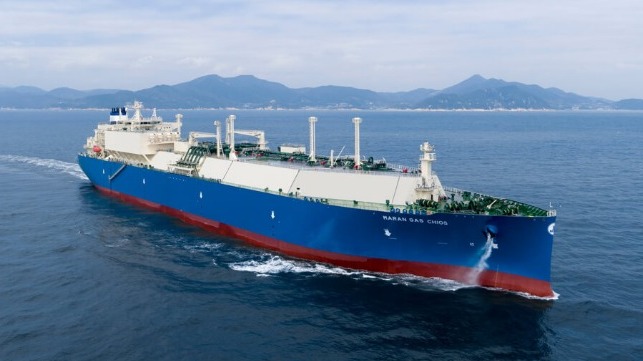Demonstration of Methane Abatement System Planned for LNG Gas Carrier

A critical trial is getting underway to get methane abatement technologies aboard an in-service LNG carrier. Environmentalists and regulators remain concerned about methane slip, the release of unburnt methane, because of its significantly higher impact on the environment which has led to increased efforts to reduce methane emissions.
The test will employ technology from Daphne Technology while combining the expertise of Wärtsilä as the engine manufacturer, The vessel for the test will come from Marine Gas Maritime and is operating under charter to Shell. Lloyd’s Register will be the independent auditor for the test’s data and DNV will be the class society.
They point out that the advancement of the process is especially important for older LNG carriers, which were one of the first segments to adopt LNG-fueled propulsion and have the highest emissions rates. Newer LNG dual-fuel engines have made advancements in reducing methane emissions. The goal of the technology being demonstrated is for further abatement of methane in exhaust gas to reach negligible levels.
The LNG Maran Gas Chios, a tanker registered in Greece and built in 2019 will undertake the test using its Wärtsilä 34DF auxiliary engines. The vessel was built by Daewoo Shipbuilding and Marine Engineering in South Korea, one of the leading builders of LNG carriers and it is a standard size with a capacity to transport 173,500 cbm.
The ship will be using Daphne’s SlipPure technology which utilizes electric power to convert methane to carbon monoxide (CO) and water (H2O). The system consists of a housing, a cartridge, and a power supply. The exhaust gas passes through several tubes in the cartridge, and the power supply triggers non-thermal plasma generation within the tubes. The non-thermal plasma reaction creates reactive species that react with the methane molecules in the gas and convert them to water and carbon monoxide (in a harmless concentration). According to Daphne, SlipPure only uses electricity during the process, and an intelligent automation system adjusts the cleaning efficiency to ensure the system runs at an ideal load.
The system received approval in principle from both LR and DNV earlier this year. The demonstration aboard an in-service vessel, with an independent audit, will help to determine the success at reducing methane emissions and creating a migration path for LNG vessels.
Currently, DNV reports that there are over 430 ships in service using LNG-fueled propulsion. As one of the near-term available options to address carbon emissions, the adoption of LNG is growing rapidly until other options such as e-methanol, other biofuels, and hydrogen-based fuels emerge in the future. DNV reports that the number of vessels delivered over the next five years fueled by LNG will more than double the total fleet to approaching 1,000 ships.
No comments:
Post a Comment